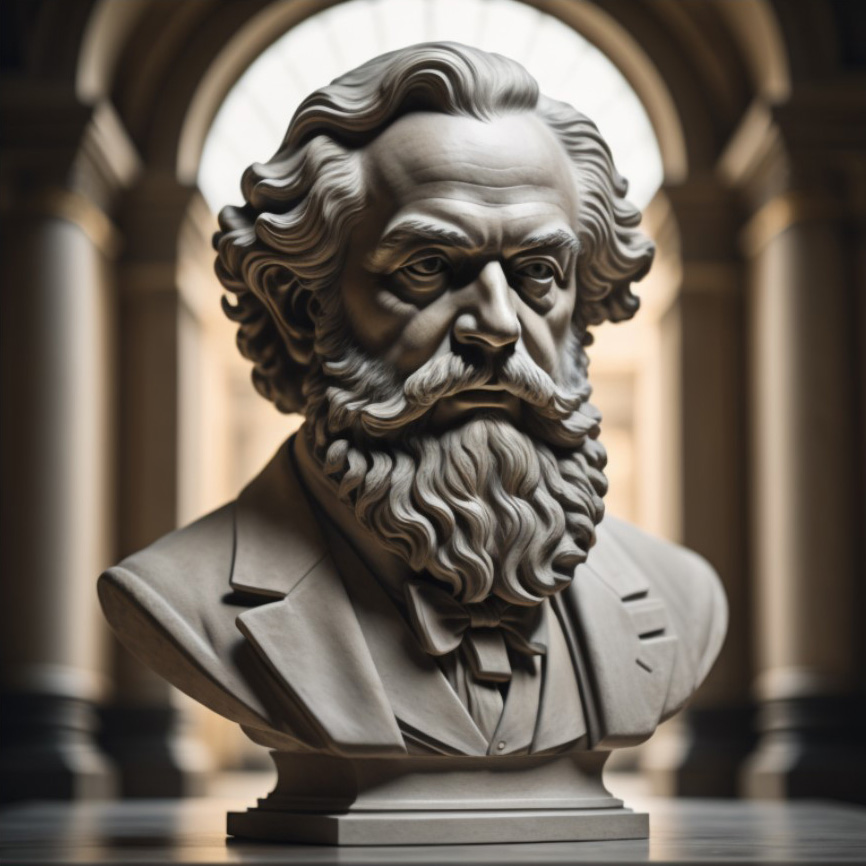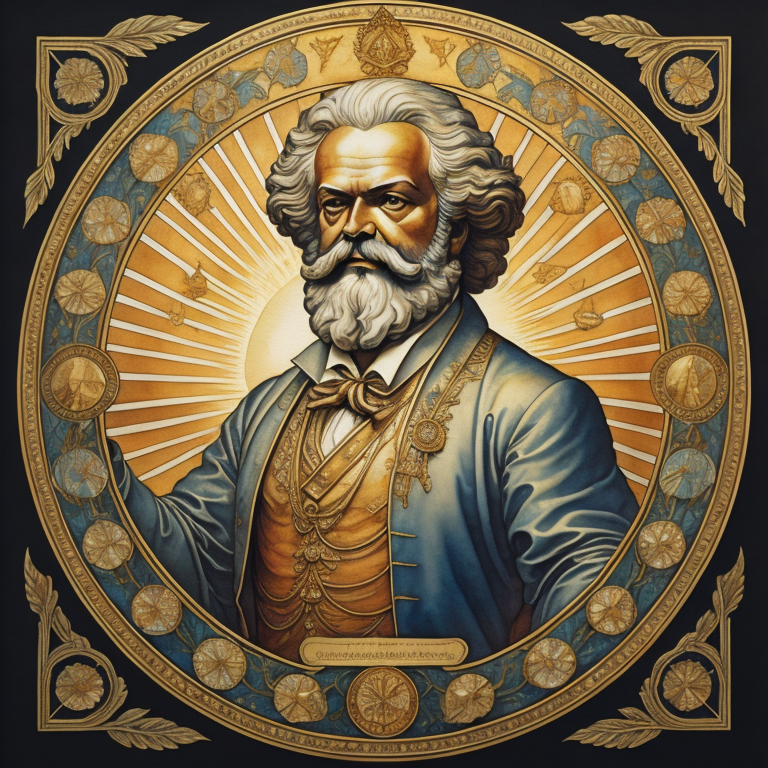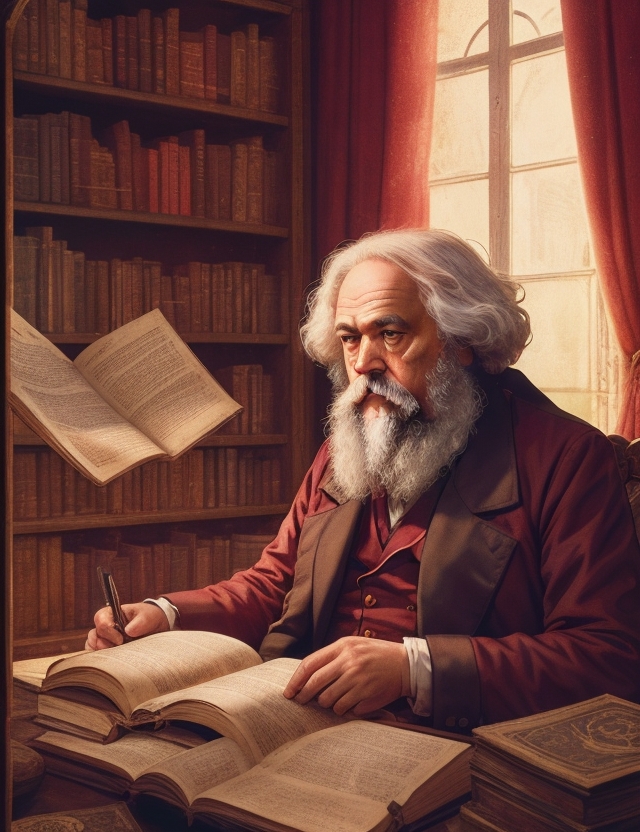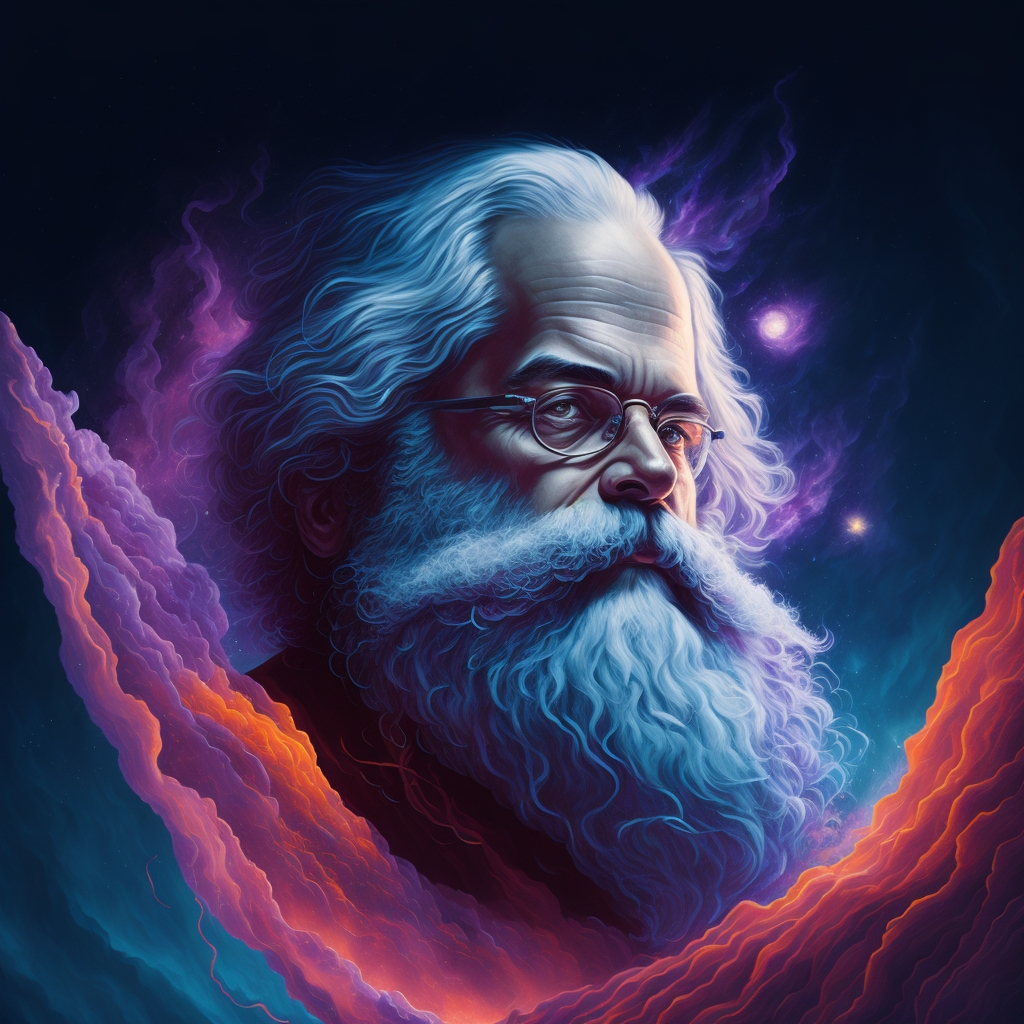
Karl Marx
Karl Marx: Exploring his Philosophy
Karl Marx
Karl Marx was a 19th century philosopher, economist and revolutionary. He is known for co-authoring the “Communist Manifesto” and for developing the theory of historical materialism, which postulates that social changes are driven by conflicts between classes. His ideas laid the foundations of Marxism, influencing political and social movements around the world.
Karl Marx and His Philosophy:
Historical materialism:
Marx believed that the history of society is the result of the material conditions of life, such as the form of production and property relations.
The class struggle:
Marx believed that the history of society is a history of class struggle, between those who control the means of production (the ruling class) and those who do not (the oppressed class).
The capital gain:
Marx believed that the ruling class enriches itself at the expense of the oppressed class by appropriating surplus value, which is the value that workers create beyond what they need to support themselves and their families.
The revolution:
Marx believed that the proletarian revolution was inevitable, and that it would lead to the abolition of private property and the creation of a communist, classless society.
Philosophy in a sentence:
Marx’s philosophy is a theory of social change that explains how the material conditions of life determine history and class struggle.
Explanation for a 10 year old child:
Imagine that there is a toy factory. The factory workers make the toys, but they can’t buy them. The toys are sold to rich children, who have a lot of money. The workers are poor, and do not have enough money to buy the toys they make themselves.
Why can’t workers buy the toys they make themselves? Because the factory owners keep all the money that the workers earn. The factory owners are rich, and the workers are poor.
What can we do so that workers can buy the toys they make themselves? We can organize and fight for our rights. We can make a revolution and take control of the means of production.
Explanation for an adult:
Marx’s philosophy is a theory of social change that explains how the material conditions of life determine history and class struggle.
The material conditions of life are the things we need to survive and thrive, such as food, clothing, shelter, work, and education. Social relationships are the relationships we have with others, such as work relationships, family relationships, and friendship relationships.
Marx believed that the material conditions of life determine social relations. For example, if the material conditions of life are poor, social relations will also be poor.
Marx also believed that the history of society is a history of class struggle. Class struggle is the conflict between those who control the means of production (the dominant class) and those who do not (the oppressed class).
The ruling class is the class that owns the means of production, such as factories, machines, and land. The oppressed class is the class that does not own the means of production, and must work for the ruling class to survive.
Marx believed that the proletarian revolution was inevitable, and that it would lead to the abolition of private property and the creation of a communist, classless society.
Communist society is a society in which the means of production are owned by the community as a whole, and in which there are no social classes or exploitation.
Marx’s philosophy has had a great influence on the world, and has been the basis of many social and political movements, such as socialism and communism.
The positive side of this philosophy:
The positive side of Marx’s philosophy is that it offers a systematic explanation of history and society, and that it identifies the causes of inequality and injustice. He also offers a vision of a more just and equal society, in which the means of production are owned by the community as a whole.
The negative side of this philosophy:
The negative side of Marx’s philosophy is that it has been used to justify totalitarian and repressive regimes. It has also been criticized for being too simplistic and for not taking into account the complexity of social reality.
A real-life problem:
A real-life problem that fits well with Marx’s philosophy is that of economic inequality. Marx argued that economic inequality is inevitable in capitalism, as the owners of the means of production enrich themselves at the expense of workers. This problem has become increasingly serious in recent decades, and Marx’s philosophy can offer an explanation for why this is so, as well as insight into how it can be solved.
The solution to the problem using this philosophy:
The solution to the problem of economic inequality, according to Marx’s philosophy, is the proletarian revolution. The proletarian revolution is the uprising of workers against the ruling class, and its objective is to abolish private property and create a communist society, without social classes.
Marx’s philosophy is a complex and controversial philosophy, but it has had a great influence on the world. His ideas have been used by social and political movements around the world, and his analysis of capitalism remains relevant today.
The opposite philosophy to that of Marx is liberalism.
Liberalism is a political philosophy that defends individual freedom, equality before the law and the limitation of state power.
Liberalism opposes Marxism in several aspects.
First, liberalism holds that private property is a natural right, while Marxism holds that private property is a source of exploitation. Second, liberalism believes that the free market is the best system for allocating resources, while Marxism believes that the state should control the economy. Third, liberalism defends democracy, while Marxism believes that proletarian revolution is the only way to achieve a just society.
Positive and negative aspects of liberalism:
Positive aspects:
- Liberalism defends individual freedom, which is a fundamental value for many people.
- Liberalism promotes equality before the law, meaning that all citizens are treated equally, regardless of their social or economic background.
- Liberalism limits the power of the state, which protects individuals from government arbitrariness.
Negative aspects:
- Liberalism can lead to economic inequality, as the rich can accumulate more wealth than the poor.
- Liberalism may be ineffective in solving social problems, such as poverty and crime.
- Liberalism may be incompatible with democracy, since the interests of the rich can dominate the interests of the poor.

Sources
Books:
- “El Capital” – Karl Marx
- “Manifiesto del Partido Comunista” – Karl Marx y Friedrich Engels
- “La Ideología Alemana” – Karl Marx y Friedrich Engel
Websites:






0 comments